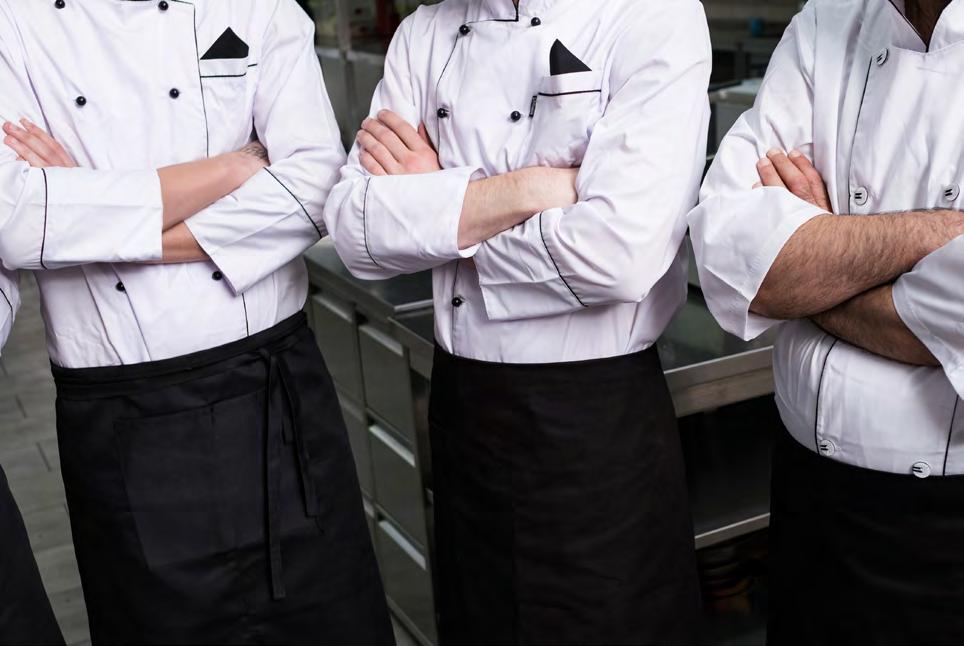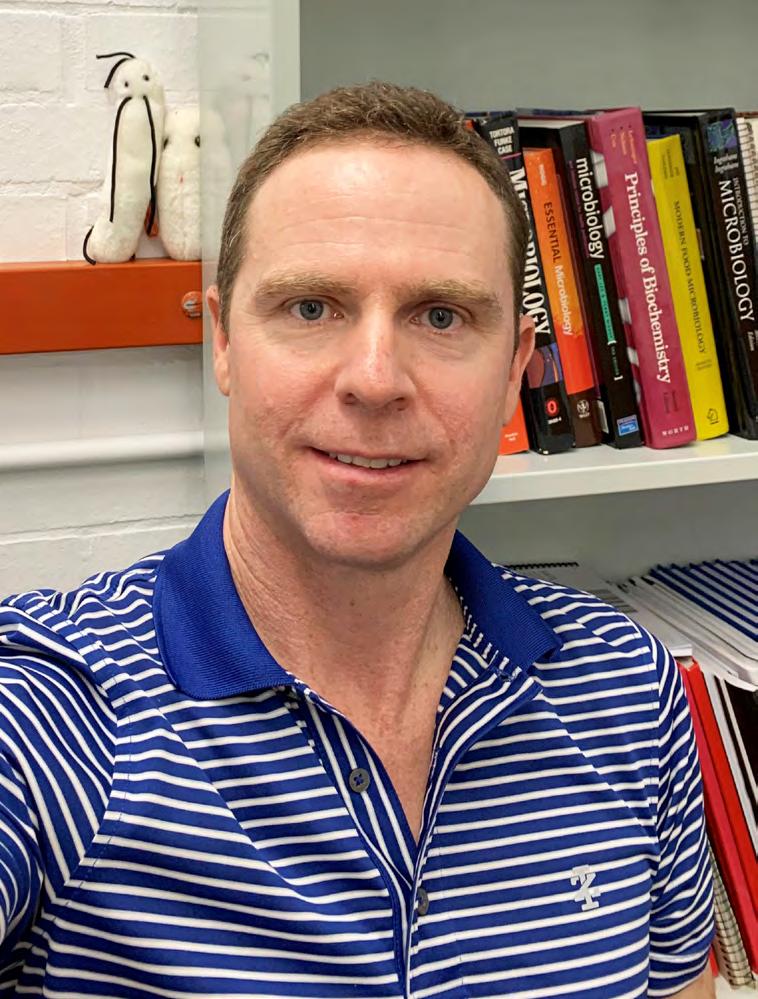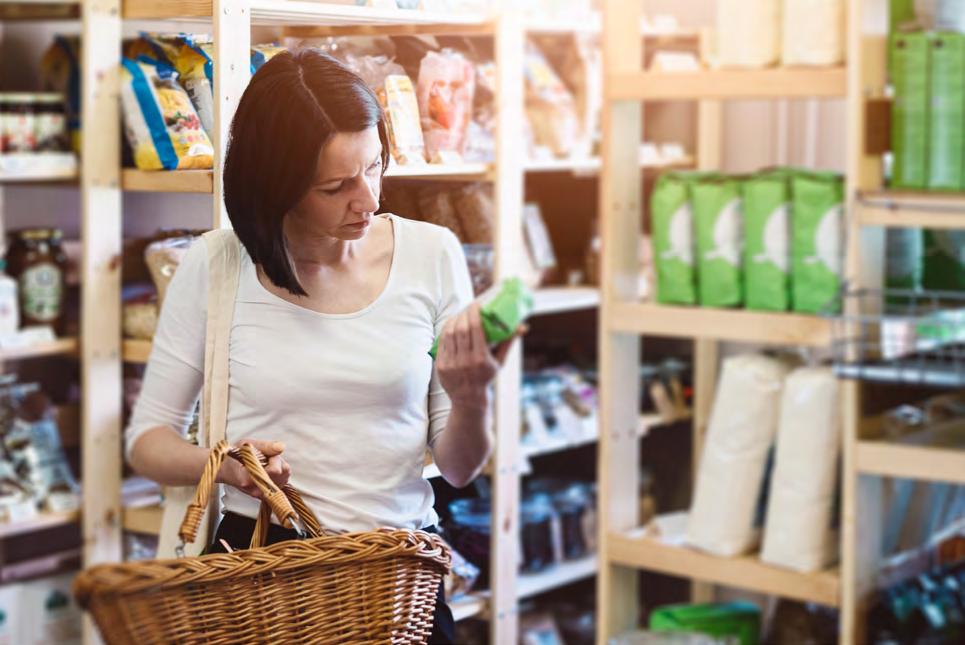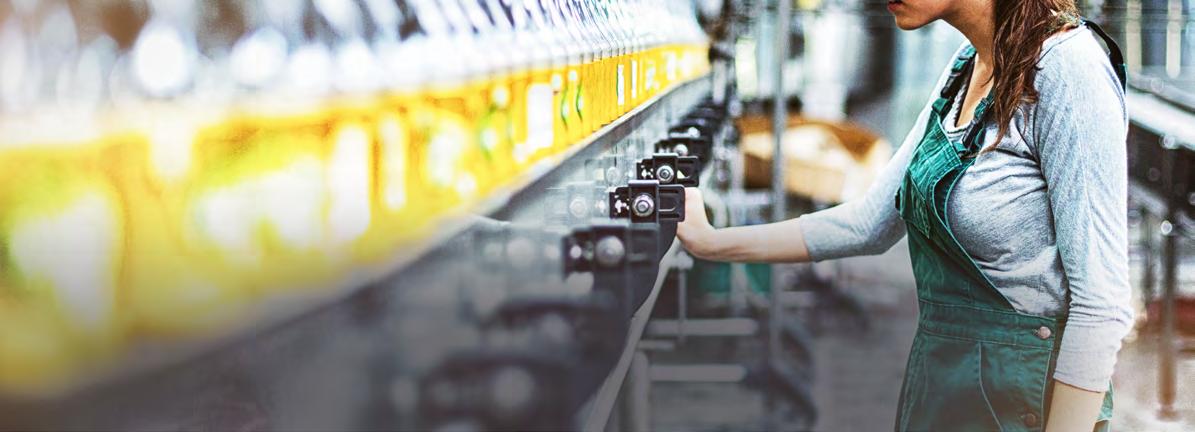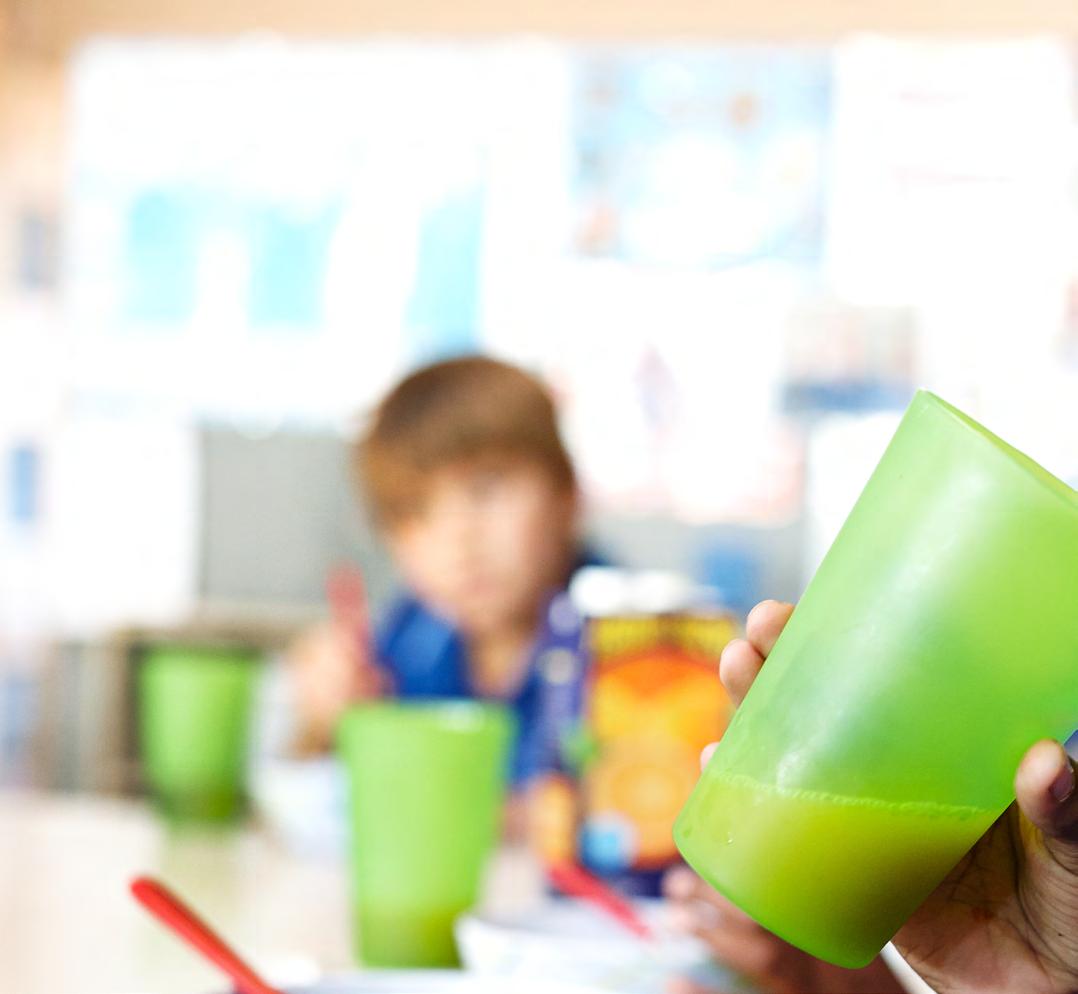
14 minute read
People
Anne-Marie Mackintosh joins AFGC
Anne-Marie Mackintosh has been appointed to the role of policy manager, nutrition and regulation, with the Australian Food and Grocery Council.
As an accredited practising dietitian with more than 25 years experience, Anne-Marie has worked in nutrition, food reformulation, food regulation and food supply across a variety of sectors including food industry, nongovernment, government and clinical.
Ms Mackintosh has food policy experience with the NSW Ministry of Health whilst implementing a healthy food and drink policy in healthcare facilities, as well as corporate experience as a nutritionist for global food companies including Cereal Partners Worldwide and PepsiCo, Mars Incorporated has appointed a new General Manager, Bill Heague, to lead Mars Food Australia, the local arm of one of the world’s most successful privately-owned manufacturing businesses.
Mr Heague originally joined the Mars company in 2008 as Sales Manager for Mars Food Australia, the manufacturer of some of Australia’s most loved food brands including Masterfoods, Uncle Ben’s, Dolmio and Kantong.
Following a successful five-year stint with Mars Food in Australia, The Produce Marketing Association Australia and New Zealand (PMA A-NZ) has appointed Deon Mahoney it’s head of food safety.
Mr Mahoney has over 30 years’ experience working in food safety across the world. In his role as head of food safety, Deon Mahoney will provide high level technical support and guidance under the PMA A-NZ food safety pillar, with the goal of ensuring the safety and suitability of fresh produce.
Mr Mahoney has considerable experience working in food safety strategically driving and delivering a nutrition agenda both internally with staff and externally with stakeholders. Ms Mackintosh helped Cereal Partners Worldwide to become one of the first companies to have HSR packaging, and helped all of Uncle Toby’s cereal portfolio to attain an HSR rating of four or more. Additionally, Ms Mackintosh has chaired the Dietitians Association of Australia Food Regulation Working Group for eight years, writing food standards submissions to FSANZ and was the DAA’s representative on FRSC roundtables. Ms Mackintosh is a member of the Federal Government’s Healthy Food Partnership Reformulation Working Group, a voluntary initiative Mr Heague relocated to Europe to take up the role of Market Director, Multisales, for Mars in the Czech Republic and Slovakia. Mr Heague then managed Mars’ Irish Multisales business from 2018, before returning home to Sydney and taking up his new role with Mars Food Australia.
Mr Heague said he is thrilled to be returning to Mars Food Australia. “I’m a foodie at heart and very excited about the major advances and significant challenges we are seeing in the food industry, both in Australia and around the world, and across a wide range of disciplines and industry sectors. This includes roles covering the development of food safety policy, microbiological risk assessment, risk communication, development and enforcement of food legislation, quality assurance, and training and education.
Mr Mahoney’s previous work for the World Health Organisation and the Food and Agriculture Organisation, with Food Standards Australia New Zealand and a State regulatory agency has seen him develop and publish a wide range of technical guidance material, provide
with the food industry, public health/ non-government organisations and academics. A key objective of this partnership is to work collaboratively to set nutrient benchmarks for key food categories to improve the food
Bill Heague returns to lead Mars Food Australia
supply.
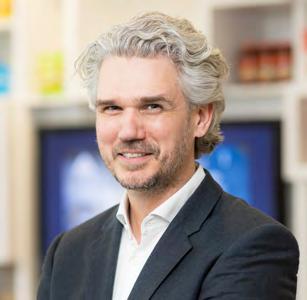
the innovation that our business can
Deon Mahoney new head of food safety
bring to the table,” Mr Heague said.
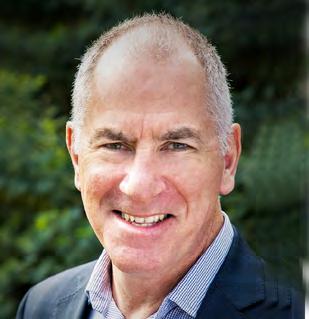
forward-looking scientific advice addressing factors that impact the safety of food products.
John Varcoe appointed Cheetham Salt quality manager
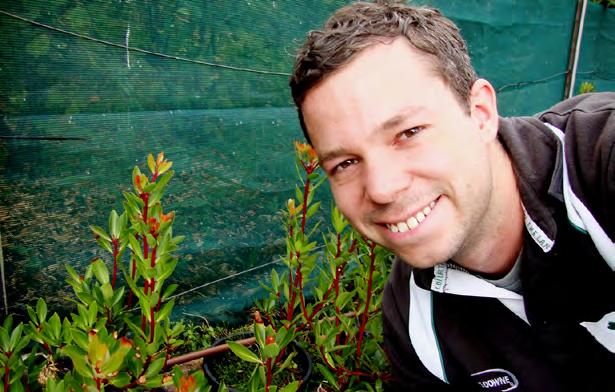

John Varcoe has joined Cheetham Salt Ltd as group quality manager overseeing food safety and quality programs across the Australian, New Zealand and Asian operations. Mr Varcoe spent 23 years in the food manufacturing industry working his way to technical director, before stepping into the retail world and joining Coles supermarket group where he was responsible for shaping and managing the core supplier quality programs for the $8 billion Coles-branded private label business, and was the architect behind the Coles Quality Academy.
After six years with Coles and gaining the opportunity to explore and work with global best practice manufacturers, he then formed his own consultancy company Quality Associates Pty Ltd. Quality Associates rapidly grew to a national company with over 50 employees servicing many well-known brands. After six years he divested his interest in the company and joined the Cheetham Salt Group.
Mr Varcoe said it is exciting being a part of a global market leading company and being entrusted to supply the world’s most essential mineral, which touches all our lives in some way. Dr Matthew Wilson has relocated from Launceston to Hobart to start a new position as a lecturer in food science at the University of Tasmania. Dr Wilson will be based within the Tasmanian Institute of Agriculture’s Centre for Food Safety and Innovation, and will teach and research on food science, regulations and technology. He previously worked as a postdoc in the ARC Training Centre for Innovative Horticultural Products, based at Newnham. Dr Wilson’s research interests
Dr Vassilis Konogiorgos
Dr Vassilis Konogiorgos has been appointed to the role of senior lecturer in food chemistry, school of agriculture and food sciences at the University of Queensland.
Dr Kontogiorgos received B.Sc. and M.Sc. degrees in food science from the Aristotle University of Thessaloniki (Greece) and a full scholarship from the Greek State Scholarships Foundation (I.K.Y) for PhD studies in food science at the University of Guelph (Canada).
Following his PhD degree Dr Kontogiorgos worked as a NSERC research fellow at Agriculture and Agri-Food Canada, and as an academic at the department of biological sciences at the University of Huddersfield, before joining the University of Queensland.
Dr Kontogiorgos’ research specialise in the field of food packaging, quality and shelf life, including understanding how innovative packaging techniques can extend shelf life and preserve quality of fresh fruits and vegetables. More broadly he is investigating cultural and management conditions influencing the growth and development of horticultural crops, as well as plant physiology, nutrition, pollination and plant extract production. He is also interested in using gas chromatography and sensory evaluation techniques.

interests are focused in the area of chemistry and physical chemistry of food macromolecules, gels, emulsions, and polysaccharide characterisation. Currently, he is working on the physical, chemical and technological properties of soluble and insoluble fibres extracted from agricultural wastes. Dr Kontogiorgos is also associate editor of Food Hydrocolloids and associate editor of Food Biophysics.
IAEF lifetime achievement awards
Three AIFST fellows, Minh Nguyen, Janet Paterson and Jay Sellahewa were honoured with International Association for Engineering and Food lifetime achievement awards on 26 September at ICEF13 in Melbourne. Mr Nguyen, Ms Paterson and Mr Sellahewa were active members of AIFST’s food engineering group in NSW for many years.
Minh Nguyen
The Universities of Western Sydney and Newcastle Highly recommended for contributions in membrane processes of foods.
Mr Nguyen is a pioneer in food engineering education in Australia, a past president of AFEA, and the current IAEF country representative.

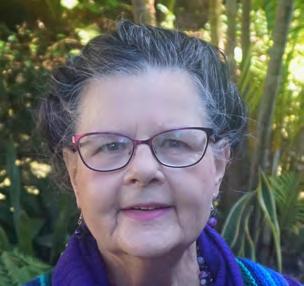
Janet Paterson
The University of NSW Recognised for her outstanding contributions to the food engineering profession by applying her industrial experience to academic research and education, teaching in food science and technology and chemical engineering degrees at UNSW. She is also the first woman to receive the award.
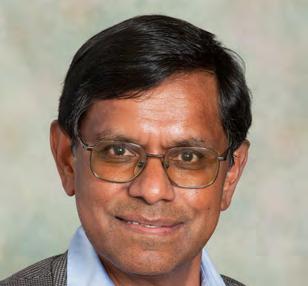
Jay Sellahewa
CSIRO and the University of NSW Mr Sellahewa has made a significant contribution to industry, the research community and the food engineering profession through managing multidisciplinary groups and projects and in the successful commercialisation of research in the agrifood sector in Australia and overseas.
Martin Cole new head of agriculture, food and wine
Professor Martin Cole has been appointed the new head of the University of Adelaide’s School of Agriculture, Food and Wine.
Professor Cole is internationally regarded for his work as a food scientist, with expertise in food safety, food trends and innovation, processing and nutrition, and the translation of science into community and commercial outcomes.
In his new role, which begins in February 2020, Professor Cole will have overall responsibility for the teaching and research efforts in the School of Agriculture, Food and Wine, based at the University’s Waite campus.
Professor Cole is an internationally recognised food scientist and visionary science leader, with impacts across government, academia and industry. He has held senior management roles in research and industry in Australia, the US and Europe and served as an expert for various global organisations including WHO and FAO and committees including the UN Food Security Committee and the International Commission on Microbiological Specifications for Foods.
Known for his strategic, sciencebusiness leadership, Professor Cole led the development of the National Food and Nutrition Strategy and Roadmap in Australia and developed business partnerships with significant impactful commercial outcomes for novel food technology, diet programs and agricultural bioproducts.
The University of Adelaide’s new strategic plan, Future Making, has identified agrifood and wine as a key industry engagement priority, and food security, environmental sustainability and good health and wellbeing as among the grand challenges to be addressed.
Professor Cole is a fellow of AIFST and was recognised for his

achievements within food science and technology in the wide areas of research, industry and education by the Institute, being awarded the Keith Farrer Award of Merit in July 2020.
Vale June Olley: a trailblazing seafood scientist
Professor June Norma Olley AM FTSE, FAIFST was a world-renowned seafood technologist and influential role model for women and girls in STEM.
Born in South London on 2 March 1924, she had a love of science from a young age. Although her father “didn’t believe in education for girls,’’ her mother succeeded in enrolling her in a good boarding school, a substantial expense for the working class family.
The young Professor Olley was so devoted to her studies that her teachers blocked out the windows of the science library so she could work there at night during the London blitz. She received a Bachelor of Science with honours from University College London in 1944, and her PhD in 1950.
Shortly after, Professor Olley joined the Torry Research Station at Aberdeen, a laboratory focused on seafood technology. Her particular expertise was fish lipid biochemistry. She did fundamental research on the nutritional value of oils like omega 3 and practical research on the production and use of fishmeal.
Professor Olley had an extraordinary scientific acumen and gained a global industry reputation for troubleshooting seemingly intractable problems. This was especially remarkable considering the cultural and institutional barriers women scientists faced at the time. Over her 18 years with the Torry Research Station, she worked in countries including the US, Israel and Italy.
In 1968, Professor Olley moved to Tasmania, where she joined the CSIRO Division of Food Preservation at the Tasmanian research laboratory and married Frank Cumbrae-Stewart.
There she led a number of projects, including modernising the burgeoning abalone industry and investigating the effects of heavy metal pollution on seafood stocks.
In 1976, Professor Olley was elected one of two women foundation fellows of the Australian Academy of Technology and Engineering (then the Australian Academy of Technological Sciences).
Professor Olley published more than 100 papers and played crucial roles in fish industry projects across the world, from South Africa to South East Asia.
The most important work of her career was on temperature function integration, bacterial growth rates and rates of deteriorative change in stored foods. She always maintained a high level of industry liaison to ensure her work had real impact.
She also attained a prodigious list of other honours, including: • Doctorate of Science from the University of London, 1968 • Senior vice-president of the Tasmanian Royal Society, 1973-1974 • Award of Merit from AIFST, 1986

• Membership of the Order of Australia, 1987 • Honorary Doctorate of Science from the University of
Tasmania, 1989
In 1989 Professor Olley retired from CSIRO and became an honorary research associate in the then Department of Agricultural Science and also the Department of Civil and Mechanical Engineering at the University of Tasmania.
Professor Olley continued to pursue her research into aspects of fish technology and microbiology and contributed to a number of scientific papers and a microbiology textbook.
She was a member of the Academy’s Climate Change and Education Forum, Membership Selection Panel and Tasmanian Division well into her 80s.
Professor Olley’s greatest legacy was her ability to lead by example and inspire young researchers (both men but especially young women) to maintain high standards and to challenge conventions. June also worked productively and collaboratively with colleagues from diverse disciplines. Many students and fellow scientists have benefited from her unique wisdom, mentoring and support. She continued these activities, including coauthoring publications, providing feedback on research students’ written work, and providing new scientific perspectives and insights to colleagues until her sudden, but peaceful, death.
Professor June Olley AM FTSE died on 29 July 2019, aged 95.
Taming the Tsunami of Plastic Waste
The pressure to curb use of plastic packaging is mounting, and it’s prompted food and beverage companies and foodservice chains to come up with some creative solutions that are recyclable, reusable, biodegradable, or compostable.
In the annals of photographs that changed history, the 2015 photo of an olive ridley sea turtle may not be the Hindenburg dirigible blowing up in 1939, Neil Armstrong on the moon in 1969, or the man holding off a tank column in Tiananmen Square in 1989. But the image of a turtle captured off the coast of Costa Rica with a plastic straw up its nose accelerated a global movement against plastic disposables and packaging— and now is rippling through the consumer packaged goods (CPG) and foodservice industries.
Also amplifying consumer alarm have been documentaries such as BBC’s Planet Earth II that chronicle the contagion of plastic waste in the great outdoors. Throw all of that emotional messaging into the echo chamber of social media, and it has created rapidly coalescing worldwide outrage over single-use plastic.
Indeed, plastic waste has become Public Enemy No. 1 in the food and beverage business these days. As a result, traditional packaged goods giants, huge restaurant chains, and startups in both businesses—and their packaging suppliers—are scrambling to create new single-use plastic packages that are recyclable or biodegradable—or, preferably, are reusable or eliminate plastic altogether. As part of this ethos, in fact, many companies are performing thorough reexaminations of their approach to all their packaging.
A Rising Tide of Consumer Concern Yet their response still can’t keep up with a tsunami in public sentiment that continues to shift massively against soda and water bottles, plastic bags, and plastic straws, and simultaneously to elevate commitment to a “circular economy.” The concern has rocketed from a marginal plaint of environmentalists to one that is at the very center of green sensibilities, nearly on a par with discussions of climate change.
WestRock, a giant paper and packaging supplier, shares research with clients that shows that 74% of consumers now say materials used in packaging are an important way companies can show interest in and support for the environment.
“It’s a gatekeeper concept for consumers and a representation of that company,” says Jeremy Keenan, strategic marketing director for the Atlanta-based company. “They’re competing on-shelf for presence, and consumers will choose the product and brand that connects with them on sustainability measures.”
More than 60% of consumers are likely to switch
away from a brand that they don’t believe is sustainable, according to research with American and UK consumers conducted by GlobalWebIndex. And 56% now are likely to pay more for products they perceive as sustainable, up from 40% in 2011.
All this attention and concern is hardly surprising. The world seems to be literally choking on single-use plastic. While some still argue about the science behind man-made global warming, there is little argument with the evident ravages of plastic wastes that aren’t quarantined and hidden in landfills. Out in the ocean, there is a NASA-measured “gyre” of plastic wastes of various concentrations that has become the size of Alaska. Microcapsules of broken-down plastics are said to inhabit every creature that plies the seas and end up in human digestive systems.
This is an excerpt from the article “Taming the Tsunami of Plastic Waste” by freelance writer Dale Buss, which appeared in the July 2019 issue of Food Technology magazine.
Read the complete article at

